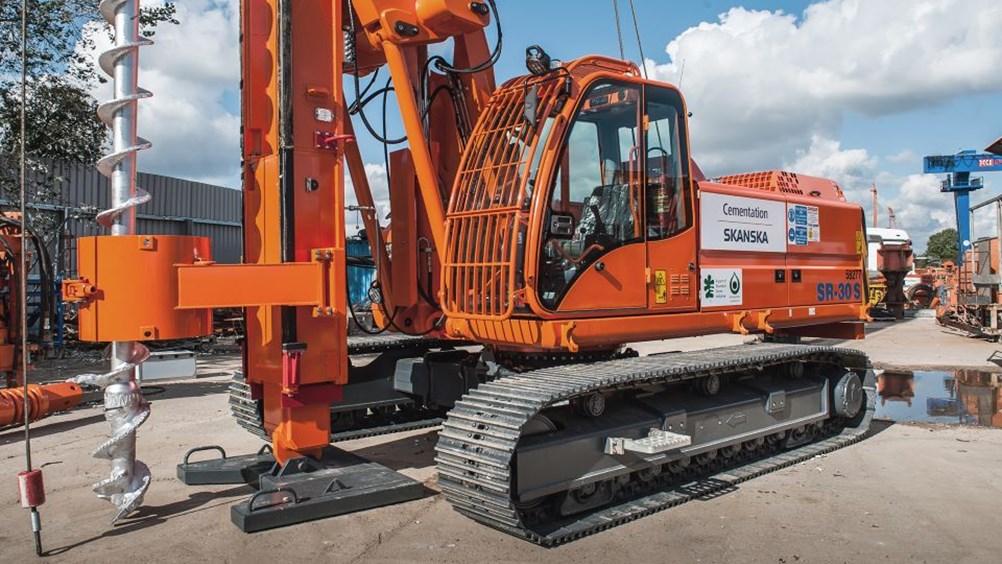
Hydrogen fuel specialists ULEMCo, Cementation Skanska and the Building Research Establishment (BRE) have received a £418,613 grant for project ZECHER (Zero Carbon Hydrogen Construction Equipment for Real-world use) from Phase 1 of the government’s Red Diesel Replacement programme.
ZECHER will provide a proof of concept for converting on-site construction equipment, delivering the physical conversion of the rig as well as exploring the viability of hydrogen fuel for construction site decarbonisation.
“ZECHER plans to show that conversion to dual-fuel will save up to 50 per cent CO2 in this duty cycle, and we expect that it will provide additional emissions benefits such as reduction in NOx and particulates”, Amanda Lyne, managing director of ULEMCo said in a statement. “The machines used in construction are owned and used for many years, so demonstrating a decarbonisation solution that utilises these existing assets is not only cost-effective but also important for sustainability.”
The trial is being carried out on a Soilmec SR30 rotary and CFA piling rig at Cementation Skanska’s plant and fabrication facility at Bentley Works, south Yorkshire. The rig, with its Cummins QSB6.7 engine, is a medium-sized rig used in construction that can use 100 litres of diesel per day of operation, leading to 262 kg CO2 in emissions.
The use of hydrogen to reduce or eliminate emissions in the construction sector is less developed than in other transport applications. The test will be undertaken on a piling rig, but ZECHER will use these findings to explore the opportunities for using hydrogen to reduce carbon and improve air quality for a range of heavy-duty, non-road machinery typically used in the early stages of large infrastructure construction projects.
According to ULEMCo, the project will examine the range of equipment used at a construction site, create detailed energy use and duty cycle data, and investigate the requirements and options for addressing the challenges of providing hydrogen at scale across the country.
“We are exploring a range of innovations that will support us in decarbonising our operations, with a target of achieving net zero carbon by 2045,” said Terry Muckian, managing director, Cementation Skanska. “Replacing diesel is key to achieving this target. We need solutions that will offer operational certainty and reliability, that will also set us on the pathway to full decarbonisation. We have already done this with HVO [hydro-treated vegetable oil], with all our plant fleet including piling rigs running on this fuel since the beginning of 2022. Exploring the role that hydrogen could play in our future operation is of strategic importance to us.”